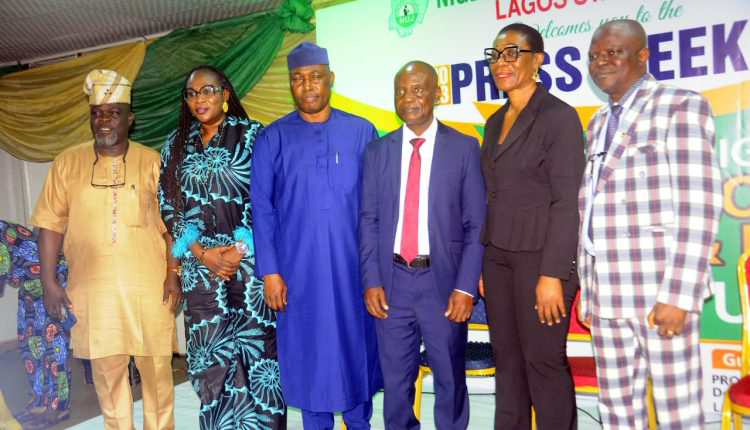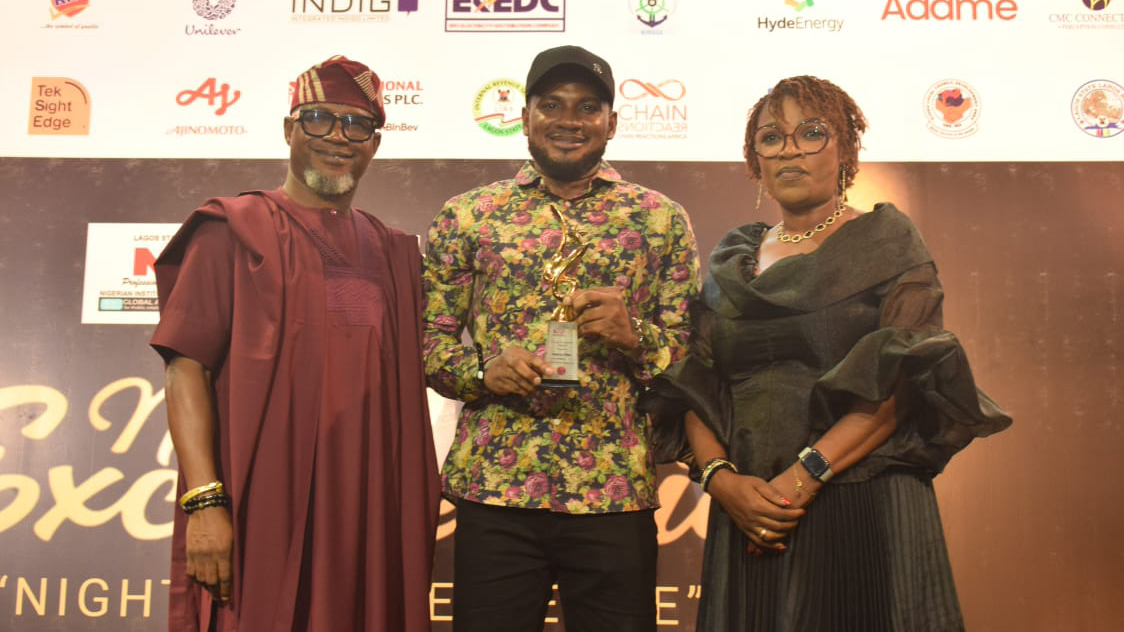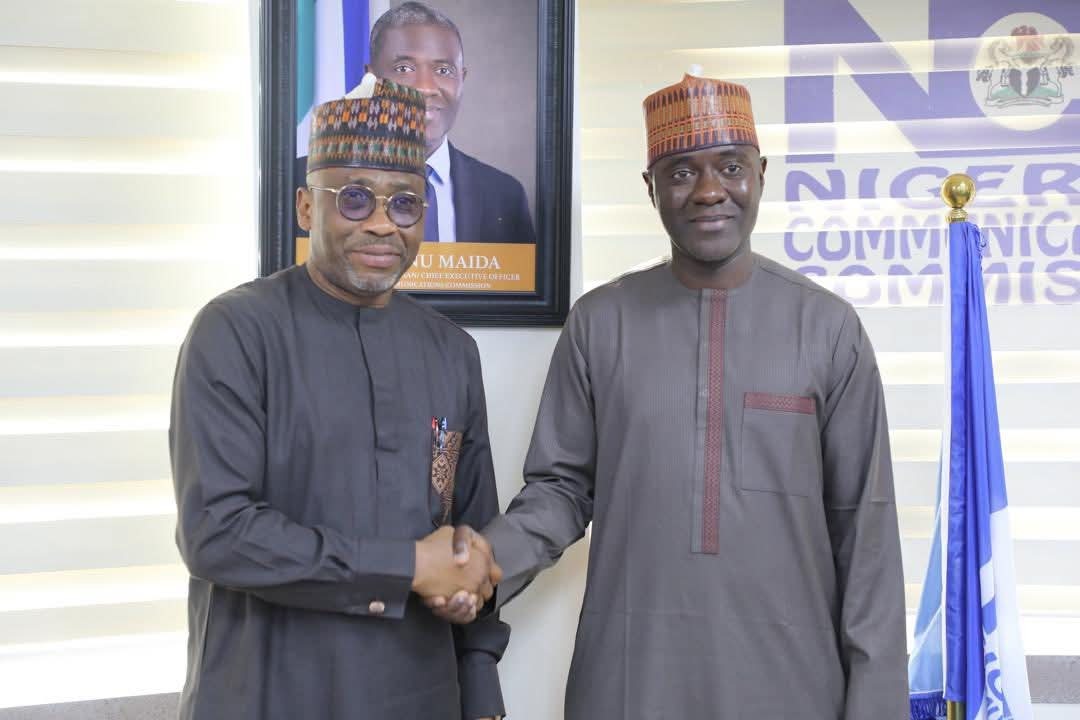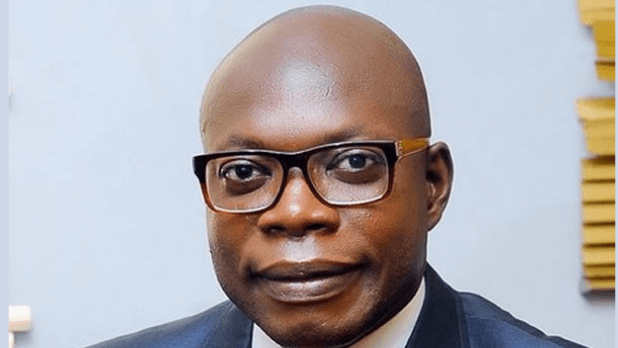
Barely few months after the 2023 general elections, media professionals and scholars have stressed the need for journalists to continue to raise the bar of hope for a brighter and sustainable nation.
They spoke at a recent lecture held in commemoration of the 2023 Press Week of the Nigeria Union of Journalists (NUJ) Lagos State Council. The guest speaker and Dean, Faculty of Communication and Media Studies, Lagos State University (LASU), Prof. Sunday Alawode, cautioned against reporting only negatives, but stressed the need for journalists to practice peace and conflict sensitive journalism.
Speaking on the theme: “Post-Election Nigeria: Paths to National Restoration and Peace,” he said, based on Section 22 of the Constitution, the media must continue to hold public office holders to account.
To him, “we are not only holding the government accountable, we are also holding people accountable to the government.” He further suggested that media professionals must drum it into the ears of politicians and everyone that election is not a do or die affair.
Alawode, however, noted that the 2023 general elections fell short of citizens’ legitimate and reasonable expectations. He said the election was characterised by apathy in voter registration and indifference when it comes to voting. He argued that it behooves on media professionals to change the narrative by ensuring electorates exercise their civic duties at all times.
Alawode further expressed concern over the vulture hypothesis practiced by journalists, where they only concentrate on reporting election periods only.
Describing election as a process, he suggested that journalists must continue the conversation, even after elections.
He said: “Only 27 per cent voted in the last election. Journalists must investigate this. The election is over and nobody is talking about voter registration. When it is six months to the next election, we’ll now be talking about voter registration. It doesn’t work that way. Immediately an election is over, voter registration should commence and it must be seamless.”
In his lecture, Alawode also interrogated the role of the media in Nigeria’s path to restoration using three theoretical frameworks: agenda setting, priming and framing.
According to him, by making some issues more salient in people’s mind (agenda setting), mass media can also shape the considerations that people take into account when making judgments about political candidates or issues (priming). He described framing as a necessary tool to reduce the complexity of an issue.
In post-election conflict resolution, he listed some mechanisms through which national restoration and peace can be achieved as constitutional mechanisms, dialogue, commission of inquiry, military intervention, power sharing and electoral reforms.He urged media operators to tell stories of the plight of minorities and the vulnerable.
Managing Director, The Guardian Newspaper, Martins Oloja, who was chairman of the event, said as media professionals, there is need to be hopeful for a better tomorrow.
“We must continue to invest in hope. We read a lot in Nigeria from the book of lamentation. We should migrate to the book of hope for a better country. We also need national orientation to believe in ourselves and our country,” he said.
“Journalism is business and not for social service any more. It’s easy to talk about the ideals of press freedom but there is need to investigate political economy of press freedom. We need to talk about the reality. Many journalists have not been paid this year and some since last year,” he regretted.
Chairman, NUJ Lagos State Council, Adeleye Ajayi, warned that journalists must be paid their salaries as at when due, adding that the union will re-visit the Media Enhancement Bill.
According to him, NUJ, over the years, has been advocating improvement in Journalists welfare. We have to rejig the bill. Journalists must earn living wage. They must also have insurance cover,” he declared.
He added that journalists must report issues factually, accurately and timely.
“Nigerian elections are still prone to violence. Perpetrators and financiers of electoral violence should be arrested and prosecuted to deter others. For peace to reign, there must be justice. Peace values must be encouraged in educational institutions. Law enforcement agencies must be alive to their jobs in promoting peace,” he advised.
There was also a panel discussion on the lecture. The panelists included the Publisher of Realnews and President of the Guild of Corporate Online Publishers (GOCOP), Maureen Chigbo; former Deputy Editor-in-Chief of the News Agency of Nigeria (NAN), Peter Dada and Director, Public Affairs Office of the Lagos State Ministry of Works and Infrastructure, Sina Odunuga.
Chigbo stated that peace cannot exist in a vacuum. To her, peace has to do with justice, fairness and equity.
“As journalists, the way to peace is in the tenets of the profession. There is a need to pursue peace journalism, which promotes moderate language. The voice of the vulnerable must be projected and inclusivity is important,” she pointed out.
Odunuga said: “I can point to journalists that have not received salary in the last three or four months, and you want such journalists to observe the ideals of journalism?
“We are supposed to be preaching hope, but the truth is that if we fail to address the realities of our time, we are going nowhere. We’ll continue to deceive ourselves. The path to peace is to look at the realities of our society,” Odunuga said.
Dada noted that journalists must engage in developmental journalism. “We must not mortgage our future with the way we pursue money. Our reportage must not heat up the polity,” he stressed.






